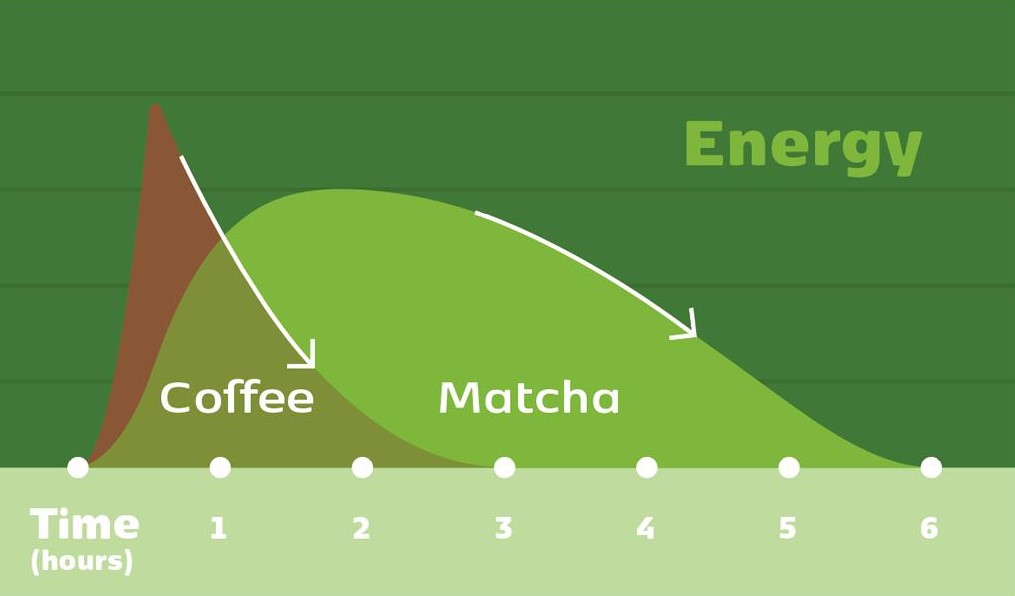Matcha – Energy Boost
Matcha green tea increases energy and enhances concentration. Many people consuming matcha notice how they feel more alert and concentrated for an extended period of time after consumption. There are two main reasons for this!
Reason 1: Matcha and Caffeine
Just like green tea, matcha does contain caffeine. Since you drink down the actual tea leaves with matcha, though, it contains more caffeine than your standard cup o’ green.
Like other teas—and coffee!—the amount of caffeine in a cup of matcha can vary, says nutritionist Keri Gans, RD. Typically, an eight-ounce cup of matcha, which is made with one teaspoon of matcha powder, contains 70 milligrams of caffeine.
There is a vital difference however in the way matcha delivers this caffeine in comparison to coffee. With matcha the caffeine is absorbed and released slowly by the body over a period of 6-8 hour. This means that matcha provides a sustainable energy boost and does not deliver the rapid 30 minute spike, slump and “jitters” associated with coffee.

Reason 2: Matcha is the highest source of L-Theanine
Matcha contains an amino acid called l-theanine, which as mentioned above that it helps your body absorb the caffeine more slowly. (Coffee doesn’t contain this magical stuff.) You don’t need to worry that you’ll have a caffeine crash after drinking matcha.
And the L-theanine amino acid in matcha is also known for its ability to increase alpha waves in the brain and promote calmness and alert concentration giving matcha users a great state. Controlled experiments have shown that Theanine has a positive effect on the mind and improves memory by increasing dopamine levels.
Additionally, the alpha brain waves increase 40 minutes after consuming Theanine, making this a great study drink for scholars and students alike.

